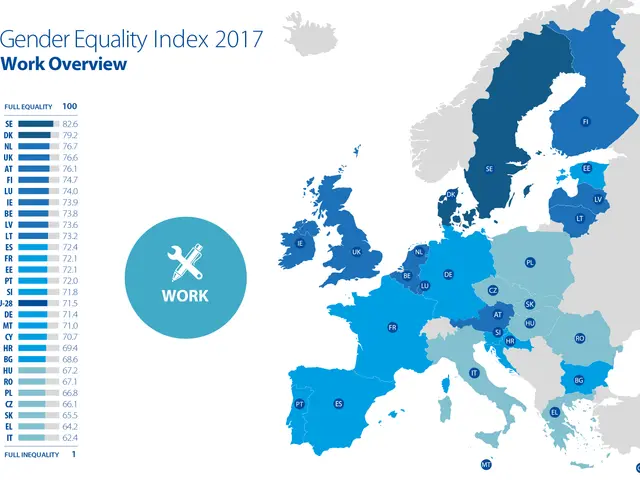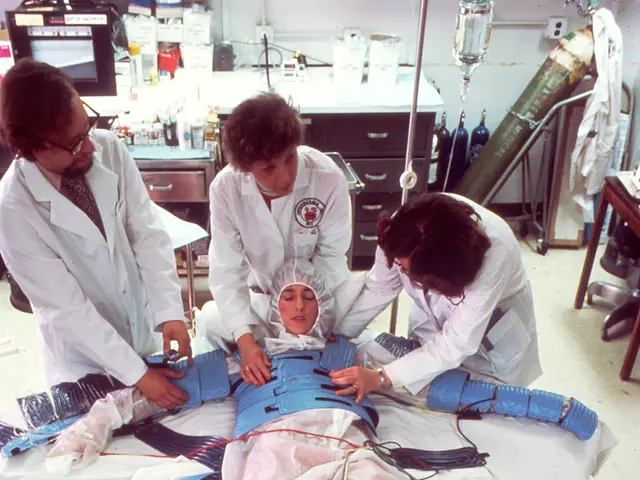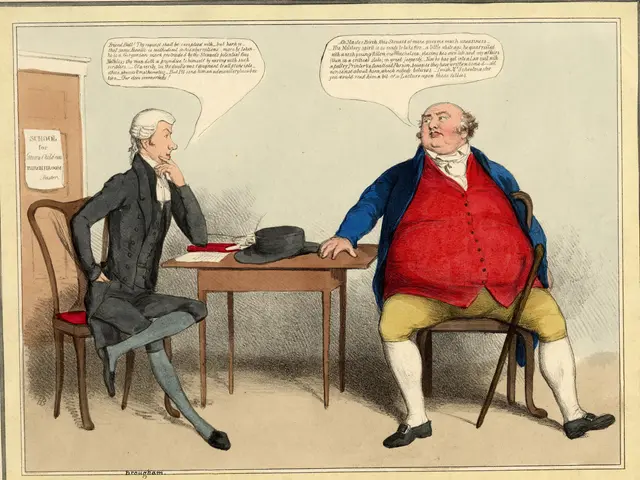Achieving Sustainable Growth: Case Studies Demonstrating Economic Transformation through a Cyclical Approach
In a world where sustainability is becoming increasingly important, the concept of the circular economy is gaining traction. This innovative approach to production and consumption is transforming our business one discarded object at a time.
The journey into this new world began at a local sustainability conference, where the author discovered remarkable businesses that embody the principles of reusing and recycling materials. One such example is a clothing company that has established a take-back program for old clothes, allowing customers to return their worn-out apparel in exchange for store credit.
This practice is not only economically viable but also engaging for consumers, as collected clothes are either resold as second-hand finds or dismantled and transformed into new materials.
In Germany, several initiatives and companies are actively promoting the manufacture of products that are easy to repair and reuse. Repair initiatives are working with craft businesses to strengthen repair culture, while companies are adapting packaging to new recycling standards for 2025 to meet sustainability goals. For instance, the cooperative network between repair cafés and trades, and startups like reparadius.de that increase transparency in bike repair services, are making a significant impact.
Data-driven solutions enabled by technology are empowering businesses to wholeheartedly commit to reducing their environmental impact. A startup uses blockchain technology to enhance transparency in supply chains, tracking materials from their origins to disposal to help businesses make informed decisions that align with sustainability goals.
Design exhibitions are also playing a crucial role in promoting sustainability through thoughtful design choices. Products built for durability and repairability are showcased, demonstrating that sustainability can be stylish and functional.
Community engagement is another key aspect of the circular economy. Workshops for students or community repair cafes help reduce waste, strengthen community bonds, and nurture sustainable behaviours. Participating in a local school workshop, students learned about recycling through hands-on activities, fostering a sense of ownership and excitement about sustainability.
The ethos of reusing and recycling materials is being embraced by forward-thinking enterprises, contributing to the development of a sustainable and resilient business. Companies like Patagonia and IKEA are developing products designed for longevity, fostering a market for sustainable products and a more conscientious consumer base.
A design workshop challenged participants to redesign everyday items with the objective of extending their lifecycle, highlighting the importance of ease of repair for the environment. A panel discussion featuring diverse stakeholders discussed a joint project aimed at creating a local circular hub, facilitating resource sharing among businesses and minimizing waste.
Lastly, the author's newfound philosophy of viewing waste as a valuable resource ignited a passion for sustainability, ultimately guiding them towards a fulfilling career in environmental consulting. The circular economy is not just a trend, but a promising path towards a sustainable future.
For those interested in learning more about the circular economy, a circular economy course is available at circulareconomycourse.com. This resource provides additional information and data to improve understanding of the subject.
Read also:
- Crisis in a neighboring nation: immediate cheese withdrawal at Rewe & Co, resulting in two fatalities.
- United Kingdom Christians Voice Opposition to Assisted Dying Legislation
- Democrats are subtly dismantling the Affordable Care Act. Here's the breakdown
- Antisebum skincare products (cream, cleanser, and moisturizer) advocating for self-acceptance and skin confidence.








